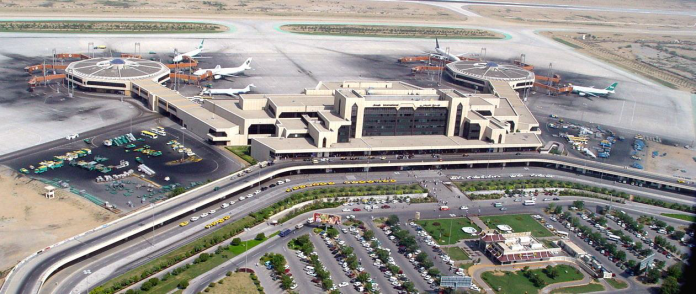KARACHI: A final decision to privatise Karachi, Lahore and new Islamabad Airports have been finalised at a meeting held in Islamabad on Monday morning and the party or parties, who will bid higher will be given management control of these airports by the Pakistan Civil Aviation Authorities (PCAA), it is learnt.
However, sources in Civil Aviation Authority in Karachi, have totally refused and rejected the claims saying that we issued a tender in the newspaper a few months back, but the final decision has yet to be taken. “I do not know about the meeting in Islamabad,” the source added.
A source in Islamabad claimed that PACC held a high-level meeting in Islamabad office today, in which the CAA management has given final approval for the privatisation of Jinnah International Airport (Karachi), Allama Iqbal Airport (Lahore) and Benazir Bhutto Airport in New Islamabad with management control.
PCAA has made it clear before the Islamabad High Court that Lahore, Karachi and New Islamabad airport are not being privatised but they are being outsourced so far as management of these airports is concerned.
Islamabad High Court, on June 9, had asked CAA authorities to produce records of the privatisation of New Islamabad International Airport, Allama Iqbal International Airport Lahore and Jinnah International Airport Karachi by June 13.
The authorities’ representative, in court on June 9, 2017, took the stance that they had brought “confidential documents” for the perusal of the court but submitting the same will be tantamount to make them public. The court said submitting the ‘relevant documents’ is necessary as the court will decide the matter only after going through the documents and might quote relevant paragraphs in the final order.
According to the advertisements, after taking management control, the company can control the airport operation and management, administration and maintenance of airport buildings, allied infrastructure, equipment, and systems and other facilities, ground handling services and future expansions of airport infrastructure, including runways, taxiways, car parks etc.
The sources said the news concerning privatisation of the major airports where a major part of the workforce of CAA deployed is feeling a sense of insecurity.
Indian government through its aviation authorities had also privatised Mumbai and Delhi Airports but after the resistances from the general public and opposition, it had to take back its decisions.
CAA is part of the government’s privatisation programme but not among the entities that have been picked for early privatisation.
According to section 25 of the Privatisation Ordinance of 2000, privatisation of any manner, including lease and concession agreements, fall under the direct domain of PC. Moreover, section 5 of the ordinance states “PC will take operational decisions on matters pertaining to privatisation, restructuring, deregulation, regulatory issues including approval of licencing and tariff rules and other related issues pertaining to the privatisation programme approved by the cabinet.” PC will also issue directions and instructions to the management of a business undertaking on all major important administrative, financial, reporting and policy matters, according to the Ordinance.
About a week ago, a media report said, the employees of PCAA filed a petition in Lahore High Court (LHC) against the privatisation of the airports.
The employees have adopted a stance that handing over aviation service management to a foreign company is a sheer breach of Civil Aviation Act which obligates authorities refraining from privatising the airports.
PCAA employees in the petition have asserted that PCAA had assured the court that it would not take such measures in another petition filed earlier. However, the government has recently put out an advertisement, aiming to grab the attention of the interested bidders.
The petition stressed that giving the managerial responsibilities of civil aviation to foreigners would cause a threat to national security as the run-ways and airborne radars are also used by Pakistan Air Force (PAF).




